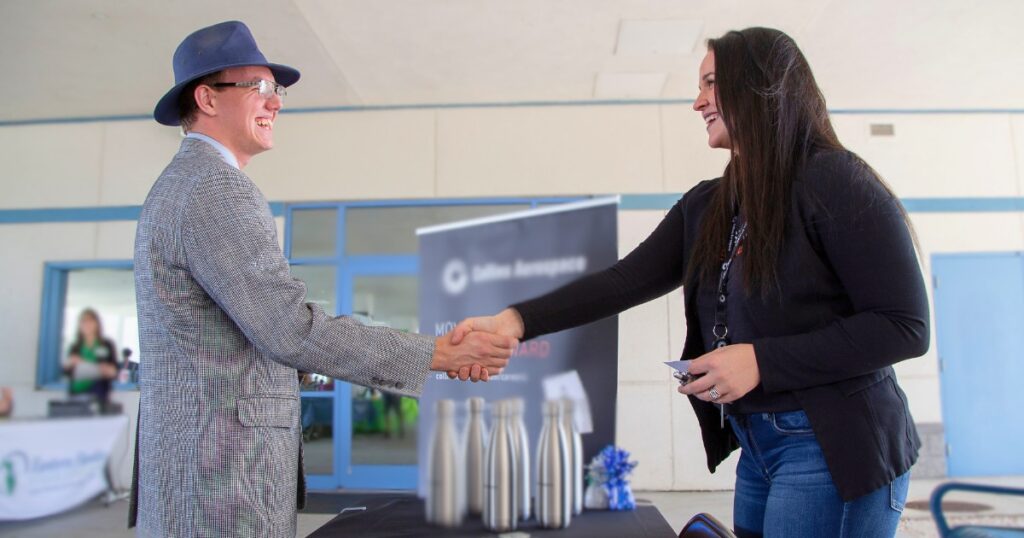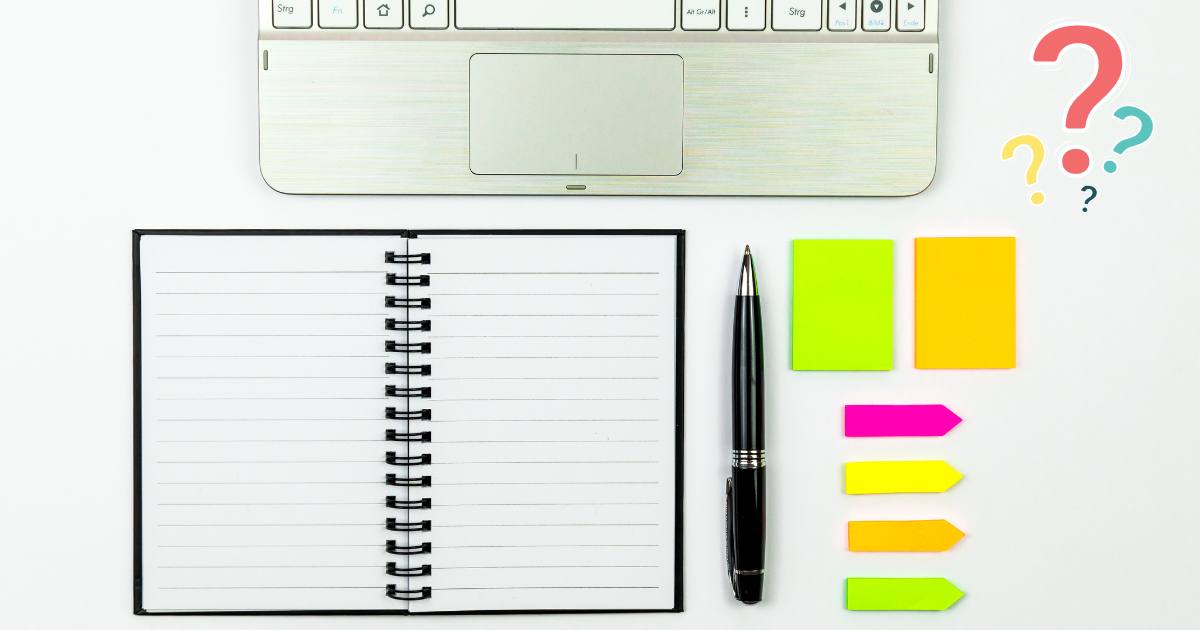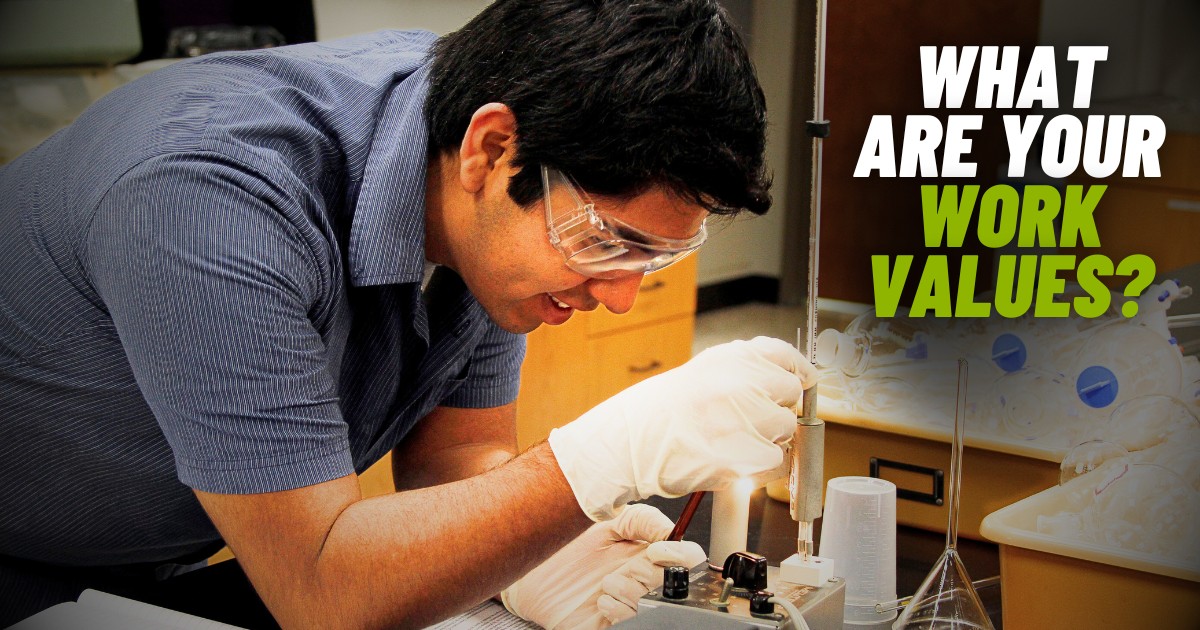Whether you’re working in a garage, behind a cash register, or from a cubicle, how you navigate your environment and interact with others makes a difference. Workplace professionalism helps you forge strong connections with others, get your work done more effectively, and ensure your environment remains happy and stress-free. (If you’re not working a job right now, these same tips will serve you well in the classroom, too!)
Here are five easy workplace professionalism tips you can put into practice right now:
1. Greet Everyone You Meet
Imagine you’re having an especially rough morning, complete with rushing to work after skipping breakfast/coffee and getting stopped by every red light on the way. As you sit at your office desk, all your co-workers walk past you without even a wave, glance, or “Hi there!” This cold treatment probably makes you feel even worse — like you’re being ignored or not worth their attention.
Whether you work in a shop, garage, or clinic, greeting people as you enter the workspace is an important habit. This lets others know that you acknowledge them, and it can help them start their day off positively. Even hearing the words “good morning” can release feel-good hormones in your brain, which decreases stress and increases self-esteem! This will also lead to everyone in the workplace feeling more united, which means better collaboration and more productivity.
2. Avoid Gossip
Speaking of things that lead to more productivity and decrease stress… It’s always best to avoid gossip in the workplace that might hurt someone’s reputation, including yours. Gossip isn’t the same thing as expressing concerns or discussing workplace issues (these discussions have a specific, solution-focused intention in mind). Rather, gossip is when you share someone’s personal or private information with others simply for the sake of it — casting them in a negative, hurtful light. This leads to wasted time, broken trust, division, anxiety, and, ultimately, a toxic work environment.
Gossip might initially seem harmless, but it can come back to bite you. Others may start seeing you as someone who will just as easily speak negatively about them behind their backs. Before you know it, your circle of trust will shrink. Stay above the noise by avoiding gossip!
3. Respect Your Coworker’s Space
Would you like it if people randomly barged into your room or house, interrupting what you were doing or leaving their things on your table? In the workplace, you’ll also have a “space” of your own — a desk, cubicle, office, station, or bench, for example — that serves as an extension of you (and you’ll probably decorate it!). Everyone in the workplace should show professionalism by respecting each other’s space.
Don’t consistently interrupt your coworker’s literal workspace or take their supplies without permission, of course. But also consider the sights, sounds, and smells that might extend to their space. Are you playing their least favorite genre of music or melting a candle that could give them an allergic reaction? When in doubt, ask, “Is what I’m doing distracting or interrupting you?” Ensure you don’t inhibit anyone’s ability to work.
4. Be Others-Centered
In general, go into the workplace each day with an others-centered mindset. Think about how you can best serve your coworker’s needs rather than just yours. Asking, “What can I help you with today?” is a great way to build strong relationships with your team. Respect those around you, and they will return that respect, leading to a more harmonious, cohesive work environment.
5. Master Workplace Meetings
Meetings allow you to learn about current events, business endeavors, and responsibilities. You can also network with your colleagues and discuss your questions and concerns. Here are a few tips to keep in mind:
- Arrive Early — First, ensure you arrive on time for every meeting. If the meeting is scheduled for 10:00 a.m., plan to arrive by 9:55 a.m. at the latest. The meeting starts at 10:00, meaning you should be seated with your laptop and coffee at 10:00, not 10:03.
- Be Attentive — Show interest in the meeting proceedings by taking notes and not texting or using your phone.
- Can’t Make It? Communicate! — If you know that you won’t be able to attend a meeting that you’ve already committed to, inform the organizer that you can’t attend. You don’t want them holding up the meeting if you aren’t going to be there. This will also allow the organizer to adjust the budget, food, and materials for the meeting accordingly.
- Need to Take a Call? Communicate! — If you’re expecting an important call or need to leave before the meeting ends, politely explain to the meeting organizer why it’s important that you leave your phone on or must excuse yourself early.
- Watch Your Body Language — Show professional body language. Slouching or leaning forward with your elbows on the table may give the impression that you’re tired or disinterested in what’s being discussed, for example.
- Don’t Interrupt — Wait your turn to speak, even if you disagree with what’s being said. For example, politely raise your hand, wait for a pause in the conversation, or ask, “May I say something?”
Ready to Practice Your Workplace Professionalism?
EFSC has dozens of resources ready to help you take your next steps! Watch the Etiquette in the Workplace self-paced workshop, meet with a Career Center Coordinator or Success Specialist for personalized assistance, and build your professional attire through the Titan2Titan Closet. Check out all our Student Services for these resources and many more.
- 5 Easy Tips for Mastering Workplace Professionalism - April 9, 2025
- EFSC’s Honors Program Helps Students Achieve Dreams - April 2, 2025
- Why Send a “Thank You” Email after an Interview? - March 26, 2025




